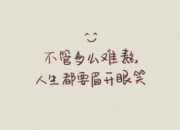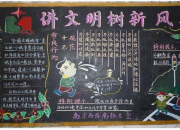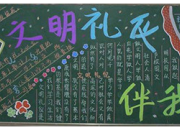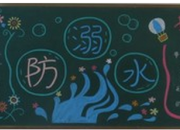红楼梦中王熙凤个性化语言赏析
时间:2021-08-31红楼梦中王熙凤个性化语言赏析
曹雪芹的高超语言技巧,赋予了《红楼梦》中每个人物极具个性化的语言风格,使每个人物的语言符合自己的性格特征、社会地位和社会关系,避免了“千部一腔,千人一面”的尴尬。
王熙凤无疑是《红楼梦》中塑造最为成功的人物之一。王熙凤八面玲珑,非常善于揣摩别人的心理。对下她说话声言俱厉、落地有声、八面威风;对上她投其所好、甜言蜜语、恭迎奉承;对于贾府的公子小姐,她又能与其打成一片。而她的语言技巧,就是一大法宝。因此,在翻译中如何体现这种言语策略,将是翻译的一大难题。本文将对比分析杨宪益和霍克斯英译本,希望给读者带来一些启发。
例1、“依我说,竟别去碰这个钉子去……”
杨译:If I were you, I wouldn’t run my head against a brick wall……
霍译:I don’t thinkit’s worth trying. I think it would be merely asking for trouble……
解析:王熙凤言语一直将“我”放在话语的突出地位,说话总以“我”开头。此句开头便是“依我说”,体现了王熙凤以自我为中心的性格特点。霍译开门见山,用“I don’t think……”言语掷地有声,凸显了人物的`特点。而杨译则为虚拟语气,减弱了人物的说话力量。
例2、“依我说,老太太今儿喜欢,要讨,今儿就讨去。”
杨译:“As she’s in high spirits today,it seems to me now’s the time to make this request.”
霍译:“As a matter of fact, Grandma is in rather a good mood today, so if you are going to ask her, it would probably be best to do so straight away.”
解析:此句和前一句虽然是两种截然不同的主张,但都是以“依我说“开头,再次体现了王熙凤以自我为中心的性格。此句,霍译并没有提及“我”,减弱了话语的力量,而杨译用了“it seems to me”。
例3、“你是素日知道我的,从来不信什么阴司地域报应的;凭什么事,我说要行就行。你叫他拿三千银子来,我就替他出这口气。”
杨译:“You know me”, she replied. “I’ve never believed all that talk about Hell and retribution. I do what I please and am always as good as my word. Let them bring me three thousand tales and I’ll see to this for them.
霍译:“You’ve known me for a long time,”she said. “You know that I’ve never believed all that talk about hell and damnation. If I decide that I want to do something I do it, no matter what it is. Tell them that if they are prepared to pay out three thousand tales of silver, I will undertake to relieve them of their trouble.”
解析:从此句可以看出王熙凤说话丝毫不留余地,做人独断,盛气凌人。两种译文翻译得都很到位,相较而言,可能杨译的译文更为简洁,更加体现了王熙凤不拖泥带水,干脆利落的性格。
例4、“谁叫老太太会调理人?调理的水葱似的,怎么怨得人要?我幸亏是孙子媳妇,我若是孙子,我早要了,还等到这会子呢!“
杨译:“Who told you, madam, to train your girls so well? If you bring one up as fresh as a spring of young parsley, you can’t blame people for wanting her. It’s lucky I’m a grandson’s wife. If I were a grandson I’d have grabbed her long time ago. I shouldn’t have waited till now.”
霍译:“You shouldn’t be so good at training your girls ,”said Xi-feng. “When you’ve brought up a beautiful young bulrush like Faithful, can you blame other people for wanting her? It’s a good job I’m only your granddaughter-in-law. If I had been your grandson, I should have asked you for her for myself a long time ago. I shouldn’t have waited till now, I can tell you!”
解析:贾赦想娶贾母的侍女鸳鸯为妾,惹得贾母大发雷霆,大家一个个噤若寒蝉,唯独王熙凤却说怪不得别人,要怪只能怪贾母自己。明面上是怪贾母,实则确实夸赞贾母,投其所好,以甜言蜜语讨贾母欢心。两种译文都显现了原文隐含的意思,增加了赞美程度,再现了一个八面玲珑、伶牙俐齿的王熙凤的形象。
不论是杨宪益译本还是霍克斯译本,都较好地展现了王熙凤的泼辣利索,八面玲珑的特点。小说中的人物语言是体现人物性格和形象的重要手段,翻译时要深刻理解人物的个性,把握人物语言的风格,不仅要领会人物语言表层的含义,更要挖掘隐含在这种形式下的思想。
【红楼梦中王熙凤个性化语言赏析】相关文章:
5.红楼梦中诗词赏析











